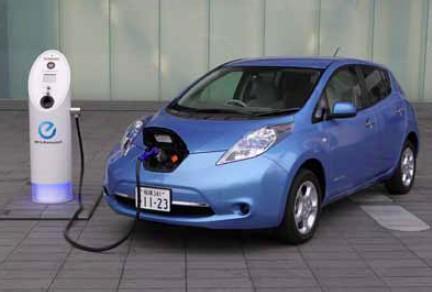Recharging electric vehicle policy
- By Wang Tao
 0 Comment(s)
0 Comment(s) Print
Print E-mail China Daily, September 13, 2013
E-mail China Daily, September 13, 2013
It is not difficult to see why promoting electric vehicle technology appeals to the Chinese government. Widespread use of electric vehicles means less oil imports, improving the country's energy security. It would also mitigate carbon emissions from the fast-growing transportation sector, improving air quality. And the economic advantage of leading in the electric vehicle industry could provide a new economic engine.
|
|
|
Electric car [File photo] |
The Chinese government started its large-scale support of electric vehicle research and development with the National High-Technology Research and Development Program (or 863 Program) in 2001. It then began the Ten Cities, Thousand Vehicles Program in 2009 with large-scale pilot projects. By the end of 2010, this program had expanded from 10 to 25 cities with six of them subsidizing private purchases.
The State Council, China's cabinet, identified new energy vehicles as one of seven strategic new industries in 2012 and approved the Energy Saving and New Energy Vehicle Industry Development Plan, aiming to sell 500,000 battery-powered electric vehicles and plug-in hybrids by 2015 and 5 million by 2020.
The government has spent several billion dollars on research and development programs so far, and it provides substantial subsidies for purchase. In some cities, consumers can get nearly $20,000 from central and local governments together for buying battery-powered electric vehicles with other benefits.
But by the end of 2012, the deadline of the first phase of the Ten Cities, Thousand Vehicles Program, only a few cities had reached their targets. The private market is still lagging, and technology gaps remain.
The Chinese government's commitment to electric vehicles deserves a great deal of praise, but there are a few things that policymakers may want to reconsider if they really want to jump-start the electric vehicle market.
First, unlike other advanced energy technologies, including wind power and high-speed rail, China took an independent path on electric vehicles by mostly relying on its own innovation and indigenous vehicle manufacturers. After years of development and heavy subsidy, however, Chinese vehicle manufacturers still trail their counterparts in developed countries in terms of core technologies, including batteries and motor control systems.
It will thus be difficult to catch up with the industry leaders in a short time, and more financial support alone will not push Chinese automakers ahead of their foreign competitors. Therefore China needs to replicate the successes in wind power and high-speed rail, opening the domestic electric vehicle market to leading international automakers and advancing technological development through technology collaboration and joint ventures.






